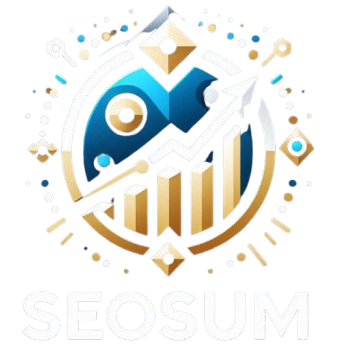The success of your business depends on how well you run your digital marketing campaigns. Creating content is just one piece of the puzzle—you also need to make sure people can find it. That’s where Search Engine Optimization (SEO) comes in.
A big part of SEO is knowing how to research and use the right keywords across your website and other digital platforms.
One of the first things to understand about SEO is the difference between different types of keywords. This helps you write content that speaks to your audience and ranks well in search results.
Two of the most important keyword types to focus on are transactional and informational keywords. Knowing how to use them correctly can make a huge difference in your marketing strategy and overall success.
9 Most Important Types of Keywords

Keywords Tell Us What Users Want
Search engines are designed to give people the most relevant answers based on what they’re searching for. That’s why understanding keyword intent is so important—it helps businesses create content that matches what users are looking for.
Broad Match Keywords
Broad match keywords are general terms like “digital marketing.” They don’t give much detail about what the searcher actually wants. Because of this, they bring up a wide range of search results that help people refine what they’re looking for.
While these keywords don’t show clear intent, they’re a good starting point. Websites optimized for broad match keywords can attract a lot of traffic by appearing in various search queries.
Transactional Keywords
Also called commercial intent keywords, transactional keywords show that someone is ready to take action—like making a purchase or signing up for a service.
For example, a search for “local digital advertising campaigns” suggests that the user is interested in finding and possibly buying a service. These types of keywords are valuable for businesses because they target potential customers who are further along in the buying process.
Informational Keywords
These keywords indicate that someone is looking for information, not necessarily to make a purchase.
For example, if someone searches “What is a keyword magic tool?” they’re likely in research mode. Websites optimized for informational keywords can become trusted sources of knowledge, helping to build credibility and attract visitors early in their decision-making process.
Geo-Targeted Keywords
These keywords include a specific location, like a city or state, making them perfect for businesses that serve local customers.
For instance, “best SEO agency in New York” helps users find businesses near them. By optimizing for geo-targeted keywords, companies can attract highly relevant traffic from people searching for services in their area.
Branded Keywords
Branded keywords include a specific company name. If someone searches “Nike running shoes,” they already know the brand and are likely considering a purchase.
Optimizing for branded keywords helps businesses improve visibility and attract users who are already familiar with their products, increasing customer loyalty and conversions.
Also Read: How do Local Citations Boost Rankings?
Commercial Informational Keywords
These keywords mix research and buying intent.
For example, a search for “compare best SEO companies for keyword research” suggests that the user is gathering information before making a purchase decision. Websites that rank for these keywords can position themselves as helpful resources, increasing their chances of converting visitors into customers.
Long-Tail Keywords
Long-tail keywords are longer and more specific than regular keywords, making them less competitive but highly targeted.
For example, instead of “running shoes,” someone might search “best running shoes for flat feet in 2024.” These keywords often bring in visitors who already know what they’re looking for, which can lead to higher conversion rates.
Latent Semantic Indexing (LSI) Keywords
LSI keywords are words and phrases related to your main keyword.
For example, if your main topic is “keyword research,” LSI keywords might include “SEO tools,” “Google search trends,” and “best keyword strategies.” Search engines use LSI to understand the context of your content, so adding related terms can improve your SEO and make your content more relevant.
Navigational Keywords
These keywords are used when someone already knows where they want to go.
For example, a search for “Nike official website” or “Facebook login” shows clear intent to visit a specific page. Optimizing for navigational keywords ensures that your website ranks well when people search directly for your brand or products, improving customer experience and brand loyalty.
Why Keywords Matter in SEO
Search Engine Optimization (SEO) is all about making your brand more visible online. It influences everything from website design and content strategy to web development. Whether you’re launching a new site or updating an existing one, SEO plays a key role in helping people find you.

Think about how most people shop today—they start with a Google search. In fact, more than 75% of people use search engines to research before making a purchase. While engaging your audience is important, you also need to remember that Google, Bing, and other search engines are the tools people use to find answers and solutions.
A strong SEO strategy works in two steps:
- First, your content ranks high on search results (SERPs).
- Then, people click on your link and visit your website.
To make this happen, you need to create content that matches what people are searching for. You also need to appear in organic search results—these are the unpaid results that show up naturally on Google.
Most SEO efforts focus on landing in the top three spots on Google because that’s where most of the traffic goes. While some businesses pay for ads, over 70% of clicks come from organic search results. Even more importantly, 92% of users never go past the first page of results.
At the end of the day, if new customers can’t find your business online, your growth will be limited. Nearly every purchase starts with a search, and if your website isn’t optimized with the right keywords, it won’t show up. That’s why doing keyword research and using SEO best practices is essential for getting noticed.
Basic Keyword Strategies for SEO
At Valve+Meter, we look at every part of search engine algorithms when building a marketing strategy. That means making sure your brand shows up in every possible search result, including Google’s local map pack, images, videos, featured snippets, and even social media platforms.

If you’re using SEO on your website and digital content, you’re probably already thinking about keywords—but are you using the right ones?
One of the biggest SEO mistakes is choosing the wrong type of keywords for your audience. Understanding the difference between transactional and informational keywords is key to getting this right.
For example, if you’re writing an in-depth blog post explaining different keyword types, your focus keyword should match the topic. In this case, informational keywords are the way to go. Your LSI (Latent Semantic Indexing) keywords—or related terms—should also have an informational intent to help search engines understand your content. Things like title tags, headers, and URL structure should all reflect this to attract organic traffic.
On the other hand, if you’re working on a product or service page, your SEO strategy should be different. These pages are meant to drive action, so they should focus on transactional keywords. Using commercial intent keywords instead of informational ones makes the content more relevant for both users and search engines.
At the end of the day, the goal of every webpage is to increase conversions. The best way to do that? Match your keywords to search intent—giving users exactly what they’re looking for.
Informational Keywords and Searches
Creating content that answers people’s questions can do wonders for your website. Many informational searches are the first step in a customer’s journey before they make a purchase.

If your content answers a commonly searched question on Google, you have a better chance of ranking higher in search results. Pages with clear, people-focused answers often earn featured snippets and show up in the “People Also Ask” section on Google—both of which can boost your visibility.
From a user’s perspective, when you provide useful and credible answers to “How,” “What,” “Why,” and “When” questions, people are more likely to trust your brand. Even if they’re not ready to buy right away, they may remember your site when they are.
A blog post or landing page that focuses on question-based keywords will usually rank higher than content that mixes transactional and informational keywords. Keeping these separate not only helps your SEO, but also creates more opportunities to re-market and re-target your audience. You can repurpose this content for social media, email newsletters, and networking opportunities—getting even more value out of your efforts.
Also Read: How can Google Search Console help?
Commercial Informational
If you’re adding a call to action in your content, consider using commercial informational keywords. These keywords target people who are further along in the buying journey—closer to making a decision.

For example, if your content compares products or services, using commercial informational keywords helps signal search engines that your page is a mix of informational and transactional content. This can improve your rankings and attract more qualified traffic.
To get the best results, include these keywords in titles and headers since search engines use them as key ranking factors.
A great example of this strategy is a landing page. These pages answer common pain points and show why your product or service is the best solution. They might compare your brand to competitors or explain how your solution is better than outdated alternatives.
By using commercial informational phrases naturally, you appeal to both search engines and potential buyers, helping turn search visitors into paying customers.
Transactional Keywords and Searches
If your goal is to turn visitors into customers, use clear and direct transactional keywords that match their buying intent.

People searching with words like “Buy,” “Purchase,” “Cheap,” and “Best” are ready to make a decision. These keywords aren’t just for paid ads—many buyers use them in organic searches, and more than 70% of website conversions come from native search results.
Since keywords reveal user intent, your product and service pages should be rich in transactional keywords. Avoid using too many informational keywords here—your content should focus on guiding users toward making a purchase.
To rank higher and attract the right audience, find transactional keywords that fit your brand name and product categories. This small tweak can make a huge difference in your search rankings and conversions.
Differences Between Transactional and Informational Keywords
The key difference between transactional and informational keywords comes down to user intent—what people are looking for when they search.

- Transactional keywords are used by people who are ready to buy or take action. These words have a high commercial intent because they signal purchasing intent. For example, someone searching for “buy iPhone 12” is likely looking to purchase one right away.
- Informational keywords are used by people who are looking for answers, not products. These searches are knowledge-driven and have low commercial intent. For example, someone searching for “how to cook spaghetti” is probably just looking for a recipe, not buying cookware.
Both types of keywords are valuable, but they serve different purposes in SEO and content marketing:
✅ Use transactional keywords to attract visitors who are ready to become customers. Optimize your product and service pages with clear calls to action, making it easy for users to buy.
✅ Use informational keywords to build trust and authority. High-quality, helpful content answers common questions and positions your brand as an industry expert. Over time, these visitors may turn into loyal customers.
A strong SEO strategy balances both types of keywords to attract visitors at every stage of the buying journey. No matter what type of content you create, always focus on providing real value to your audience.
Understanding Search Queries

A Simple Guide to Search Queries
In today’s digital world, search queries are part of our daily routine. Whether you’re looking for information, shopping for a product, or finding directions to a new restaurant, search engines help you get what you need.
What Are Search Queries?
A search query is simply a question or phrase you type into Google, Bing, or another search engine. The search engine then scans the internet and shows you the most relevant results.
How Do Search Queries Work?
Search engines use complex algorithms to analyze your words, match them with web pages, and rank them based on relevance. The most useful and well-optimized pages appear at the top of the search results.
Why Are Search Queries Important?
Search queries matter because they help people find what they need quickly. For businesses, they are a powerful tool for driving website traffic, improving visibility, and attracting potential customers.
What Affects Search Queries?
Several factors influence search results, including:
✔ Your location – Local searches return results based on where you are.
✔ Search history – Past searches influence the results you see.
✔ Device type – Mobile and desktop searches can display different results.
How to Optimize for Search Queries
If you want your content to show up in search results, you need to optimize for the right search queries. Here’s how:
🔹 Do keyword research – Find out what your audience is searching for.
🔹 Create high-quality content – Answer questions and provide real value.
🔹 Use keywords naturally – Avoid overstuffing; focus on readability.
🔹 Optimize titles and meta descriptions – Make them clear, engaging, and relevant.
🔹 Keep information accurate and updated – Especially for local businesses.
The Future of Search Queries
Search engines are constantly evolving. In the future, we can expect more personalized search results and even smarter algorithms that better understand user intent.
Misconceptions About Search Queries
Many people think search queries only matter for online businesses, but that’s not true! Even local stores and service providers can benefit from showing up in search results with accurate and updated online listings.
By understanding search queries and optimizing your content, you can boost your online presence, reach more people, and grow your business!
Using Transactional and Informational Keywords in Your Content
To make the most of transactional and informational keywords, you first need to understand who your audience is and what they need.

✔ Use informational keywords to create helpful content that answers common questions and provides real value.
✔ Use transactional keywords to build product or service pages that make it easy for visitors to make a purchase.
When writing, keep your tone conversational and engaging. Talk to your readers, not at them. Here are a few simple tips:
🔹 Use everyday language – Keep it simple and relatable.
🔹 Write in active voice – It makes your content more direct and engaging.
🔹 Ask questions – It keeps readers involved (See what I did there?).
🔹 Use analogies and examples – They help explain things clearly.
By focusing on what your audience wants and making your content easy to read, you’ll create content that not only ranks well but also keeps people coming back for more!
Also Read: How does Site Structure Affect SEO?
How Valve+Meter Approaches Content Optimization
At Valve+Meter, we’re a full-service marketing firm focused on delivering high-quality leads through SEO, PPC, email marketing, web development, and more.
One of the best ways to boost your SEO is through on-page optimization. By understanding the purpose of each page, you can use the right keywords to match what your audience is searching for.
Most websites benefit from a mix of transactional and informational keywords, but knowing the difference is key to building a clear and effective SEO strategy.
Want to improve your search visibility? Our team at Valve+Meter Performance Marketing specializes in content and technical SEO, including inbound link strategies and website audits. Get in touch for a free marketing assessment—we take a data-driven approach to help businesses grow!





